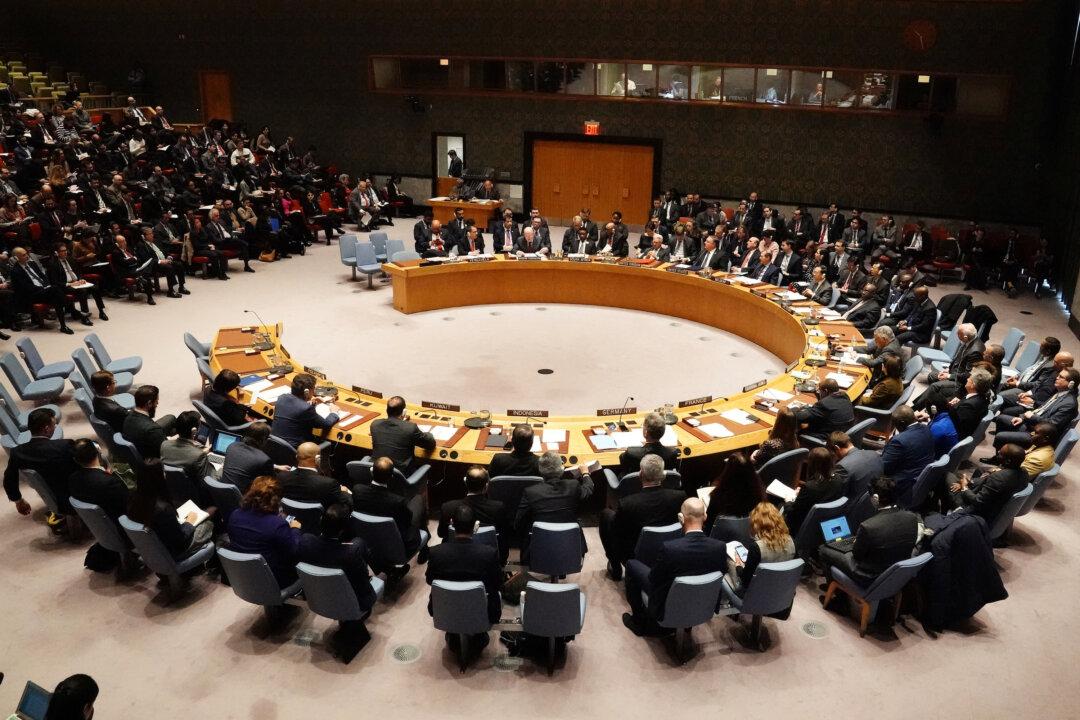The United States urged China and Russia to “stop shielding” North Korea from any sanctions by the United Nations Security Council, citing North Korea’s destabilizing and unlawful missile launches.
At a March 20 meeting of the security council in New York, U.S. Ambassador to the U.N. Linda Thomas-Greenfield said China and Russia’s “obstructionism in the council is encouraging the DPRK to launch ballistic missiles with impunity,” referring to North Korea’s official name, the Democratic People’s Republic of Korea.





